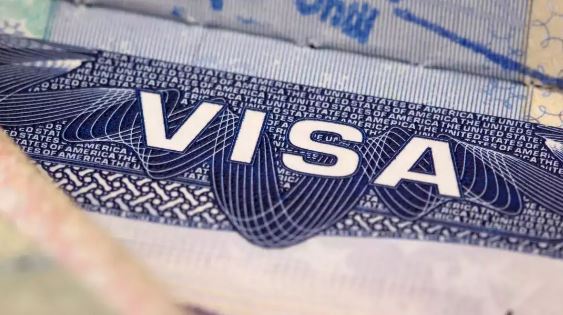Lifestyle
9 reasons why your US visa can get rejected

Applying for a visa to the United States can be a significant step towards fulfilling personal, professional, or educational aspirations.
It’s common knowledge that the United States visa application process is a long one, it’s important to remember that it also demands meticulous attention to detail and adherence to specific requirements. This is to ensure a successful outcome.
Understanding and avoiding common pitfalls can greatly enhance the chances of securing a US visa.
Find here some of the most frequent mistakes that applicants make when applying for a US visa, and also, practical tips on how to navigate the application process effectively.
1. Incomplete or inaccurate application: The US visa application process requires attention to detail. Any mistakes or omissions in the application form can lead to delays or complete rejection. It’s important to go through the visa form carefully, understand each question asked and provide accurate and complete information.
2. Insufficient documentation: It is important to figure out the specific visa type you are applying for. Each visa category has specific documentary requirements. Failure to provide all necessary supporting documents can result in the rejection of the visa application. Pay attention to the checklist provided by the US embassy or consulate.
3. Misrepresentation or fraud: Providing false information or misrepresenting facts on the visa application is a serious offence. This can include falsifying documents, misstating employment history, or misrepresenting intentions for travelling to the US. Such actions can lead to visa denial, long-term immigration consequences, and even legal repercussions.
4. Lack of preparation for the interview: Many visa categories require an in-person interview at the US embassy or consulate. Applicants should prepare thoroughly for the interview by familiarising themselves with the purpose of their trip, understanding the visa requirements, and being able to articulate their travel plans clearly. Lack of preparation or inability to answer questions about the trip can raise doubts in the visa officer’s mind, leading to visa denial.
5. Inadequate financial documentation: For tourist visas and certain other categories, applicants need to demonstrate that they have sufficient funds to cover their expenses during their stay in the US. This includes providing bank statements, income tax returns, and other financial documents. Failure to provide adequate financial documentation or inconsistencies in financial statements can lead to doubts about the applicant’s ability to support themselves during their visit.
6. Overlooking immigration history: Applicants must disclose their immigration history accurately, including any previous visa denials, overstays, or immigration violations. Failure to disclose such information can be considered misrepresentation and can result in visa refusal or even a ban on future visa applications.
7. Not demonstrating strong ties to home country: Visa officers assess whether applicants have strong ties to their home country and are likely to return after their visit to the US. Strong ties can include stable employment, property ownership, family connections, and other commitments. Applicants should provide evidence of their ties to South Africa to reassure the visa officer of their intention to return.
8. Providing incorrect information about travel plans: Applicants must provide clear and consistent information about their travel plans, including the purpose of the visit, duration of stay, and accommodation arrangements. Any inconsistencies or vagueness in the information provided can raise doubts about the legitimacy of the trip and lead to visa denial.
9. Not seeking professional assistance if needed: For complex visa cases or if unsure about the application process, applicants should consider seeking assistance from immigration consultants or attorneys. These professionals can provide guidance on the application process, review documentation for accuracy and completeness, and offer support in preparing for the visa interview.






